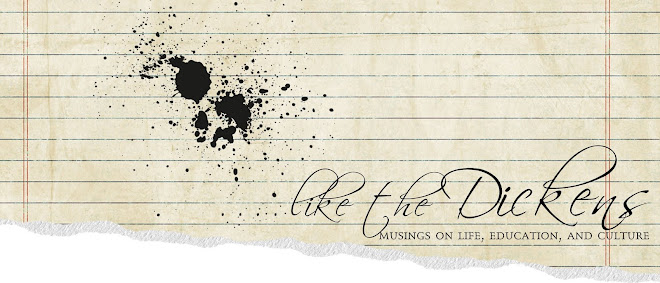As we went over the basic format for a three paragraph essay today, the subject of transition words came up. I explained that transitions are words that signal to the reader that you are moving from one point to the next and they are important because they lend clarity to your writing. The class was giving examples of different transitions words they could use like first, then, next, also, in conclusion, in addition, furthermore, secondly, and lastly. Then I remembered one of my favorite lines from Much Ado About Nothing. The crazy fool of a constable and the comic relief, Dogberry, brings some criminals before the Duke. His explanation of their crime and his use of transitions is absolutely hilarious:
Dogberry: Marry, sir, they have committed false report; moreover, they have spoken untruths; secondarily, they are slanders; sixth and lastly, they have belied a lady; thirdly, they have verified unjust things; and, to conclude, they are lying knaves.

After we established the fact that the transitions were all jumbled up, we had a good laugh over the fact that he found six ways to say, "He lied." I love it when we can use humor and Shakespeare in a lesson. (By the way, if you haven't seen Much Ado About Nothing, you need to asap. With Emma Thompson and Kenneth Branagh you cannot go wrong. Michael Keaton plays Dogberry and is hilarious.)


hi
ReplyDeletehi
Delete